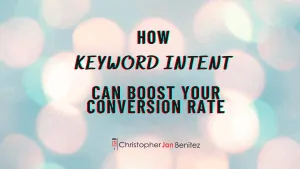Last Updated on 5 months by Christopher Jan Benitez
Ever wonder why searchers enter keywords differently on search engines?
Two words. Keyword intent.
And in this article, we’ll talk about that. First, let’s find out what it is, its importance, the types of keyword intent, and how you can use it to boost your website’s conversion rate.
What is keyword intent?
Keyword search intent refers to what the user or searcher wants when entering words on search engines. User intent describes their purpose for using a specific set of words when searching.
Hopefully, the image below will help convey what I’m getting at.
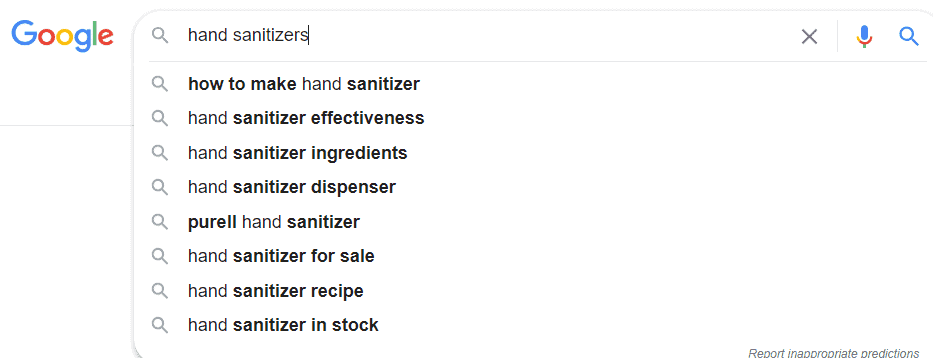
When I entered the keyword “hand sanitizers” on Google, I looked at the autocomplete suggestions.
These were among the auto-suggestions:
- how to make hand sanitizer
- hand sanitizer effectiveness
- purell hand sanitizer
- hand sanitizer for sale
Based on the list, you can notice that each auto-suggestion aims for a specific result. And this is because each auto-suggestion has a unique keyword intent.
Below is a table that can elaborate on what each auto-suggestion implies. Particularly, let’s delve into why searchers type these specific sets of words.
| AUTO-SUGGESTION | WHAT THE SEARCHER IS IMPLYING | TITLE THAT MIGHT APPEAL TO THEM |
| how to make hand sanitizer | Looking for ideas on how to make hand sanitizer | 10 Creative Ideas on How to Make Hand Sanitizer at Home |
| hand sanitizer effectiveness | Wants more information about the effectiveness of hand sanitizers. And if these items are proven effective, they might want to buy the product | Are Hand Sanitizers 100% Effective? (15 of the Most Effective Products) |
| purell hand sanitizer | Looking for hand sanitizers from a famous brand, Purell | 5 Benefits of Purell Hand Sanitizers |
| hand sanitizer for sale | Wants to see hand sanitizer for sale | 22% off on Hand Sanitizers |
Why is keyword intent important?
Keyword intent as part of the keyword research process is essential because it can increase your site’s conversion rate. Knowing this subject also allows you to optimize your site correctly.
For instance, it’s not enough to use a tool like keywordintent.io that only shows you the search volume and CPC of keywords. Strangely enough, a tool with the name keywordintent .io should be able to determine keyword intent.
So, if you’re serious about getting the most out of optimizing your website for keywords, these are the things that keyword intent can do:
- Attract qualified traffic – Target the right audience — the people you know will be interested in your offer.
- Offer cost-effective advertising – Helps consume your ad budget wisely. With the right target, you can spend on ads that generate leads and sales.
- Align with content’s primary purpose – Creating content isn’t easy. Using keyword intent to reach out to people who like your piece makes the process worthwhile.
Related: What’s a Bucket Brigade in Copywriting?
Four types of search intent
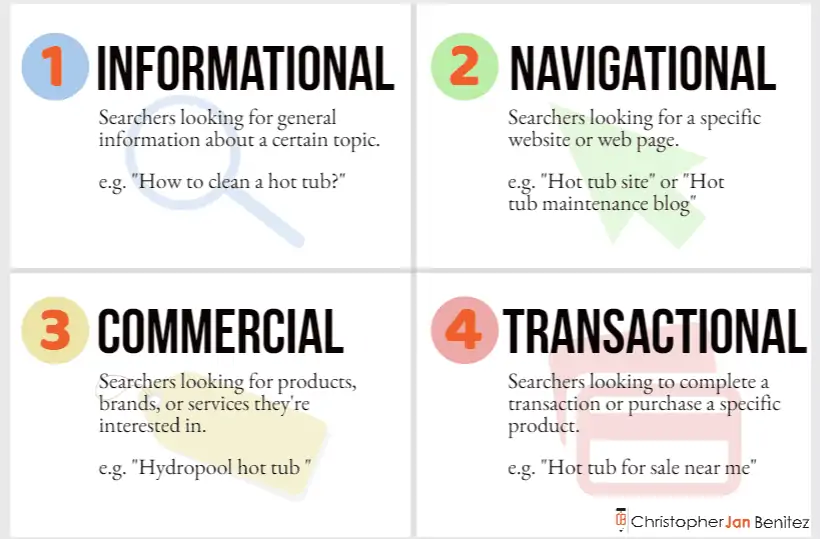
Knowing the different types of keyword intent can keep you organized.
It’s like visiting a foreign country and sticking to your original plan.
Here they are.
1. Informational keywords
This refers to the intent of gathering more information. It signifies that a searcher wants to learn more about a concept in the provided key phrase.
Return to the list of auto-suggestions above. There, “how to make hand sanitizer” is the key phrase with informational intent.
Here are modifiers that suggest informational intent:
- Questions beginning with what, where, how
- Meaning of …, definition of …, synonym of …
- X history, X tutorial, X full name
2. Commercial investigation
Keywords with commercial or buyer intent mean that a user is willing to take action and wants to take you up on your offer. This type of intent is also called the “buy now” intent because of its commercial nature.
Again, let’s go back to the autocomplete suggestions for the keyword “hand sanitizer”. From the discussion above, the auto-suggestion with a commercial keyword intent is “hand sanitizer for sale”.
Here are modifiers that suggest commercial intent:
- Shop, buy, download
- Discounts, deals, coupon codes
- Free shipping, special promos, sale
3. Transactional search intent
This is a mix of informational and commercial intent. That’s why keywords with a transactional intent represent the searcher’s willingness to take action and learn more about a concept.
Head back to the list of auto-suggestions. There, you can see that the keyphrase with a transactional intent is “hand sanitizer effectiveness.”
Here are modifiers that suggest transactional intent:
- Roundup posts with titles beginning in best, worst, and top 10
- Review, effectiveness, pros, and cons
- Product comparisons with words like versus and which is better
4. Navigational search intent
Navigational intent is when the searcher uses a brand name when keying in words on search engines. It signifies that they already know what they want — and they even know what brand they want.
“purell hand sanitizer“? From the list above, that’s the key phrase with a navigational intent.
Here are modifiers that suggest navigational intent:
- X login, x pricing, and x sign up
- X business hours, x address, x supervisors
- X website, x FB page, x Twitter handle
How to determine keyword intent
Keywords are powerful. Unfortunately, not using them with the right keyword intent diminishes their power.
Don’t know how to determine keyword intent, though?
Here are helpful tips:
Analyze keyword list
Analyzing keywords is arguably the simplest way to go.
Before anything else, though, generate a list of keywords. You can use free keyword generators like Keyword.io. Then refer to the discussions above as the basis.
Use People also ask
Google’s People also ask section is where the search engine displays relevant questions that involve your keyword. You can find this section as you scroll through the search results page.
In most cases, the key phrases here indicate informational intent.
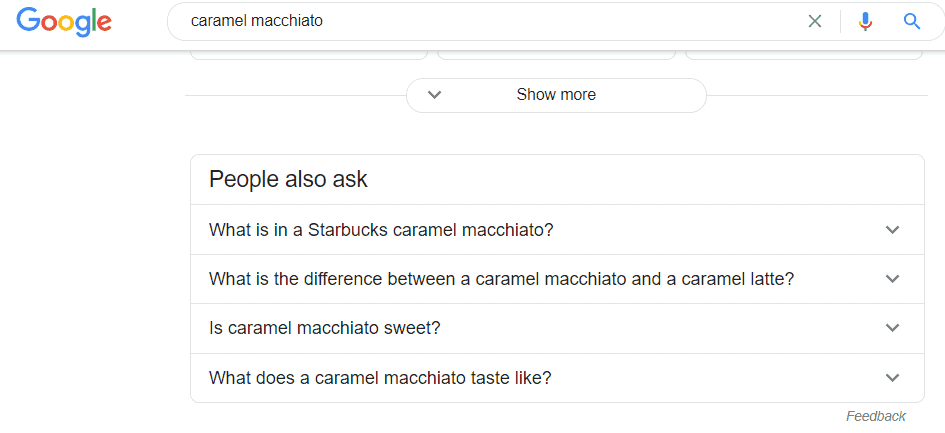
As you can see from the image above, people want to know more information about the keyword (caramel macchiato). Sure, one question mentioned a brand (Starbucks). However, the context of the question strongly hints that the searcher is looking for information.
Use Shopping results
Enter a seed keyword on Google. Then launch its Shopping section.
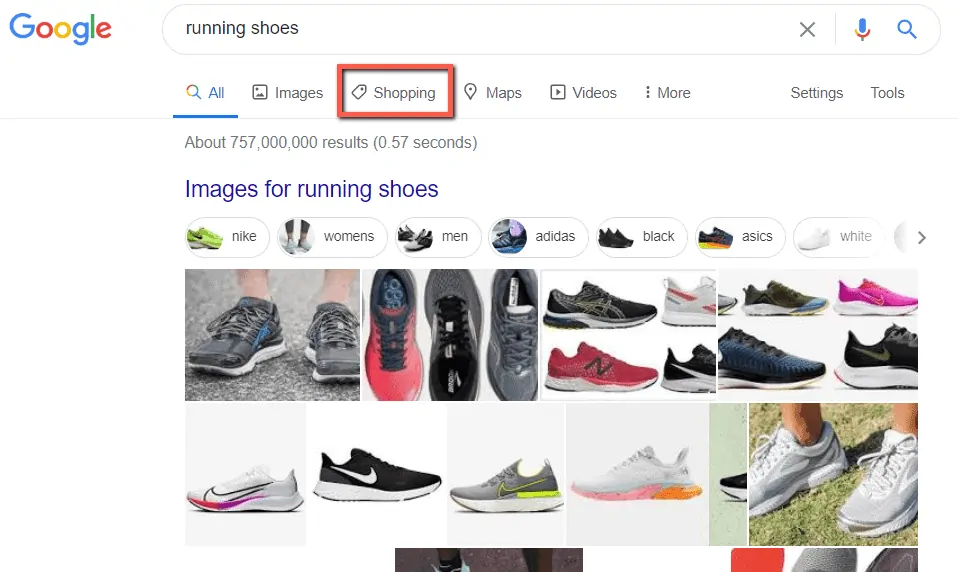
You will then be redirected to a section that displays commercial products about your keyword. This, of course, indicates commercial intent.
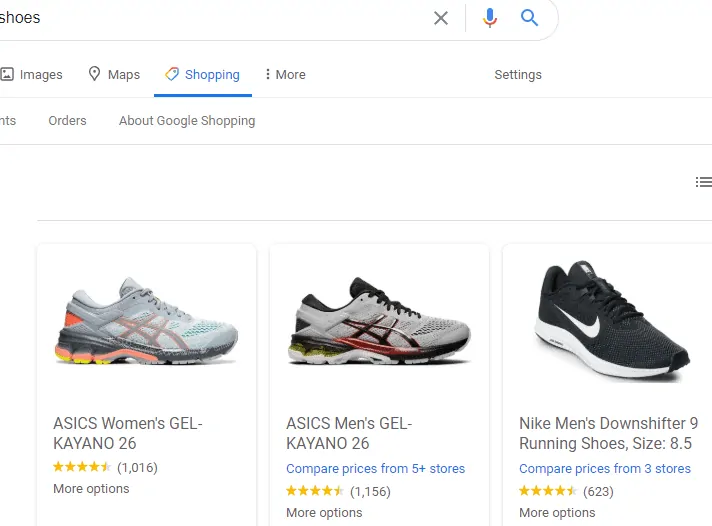
Use keyword research tool
You can use different tools to determine a keyword’s search intent.
A paid subscription to SEMrush gives you access to its Keyword Magic Tool, which will show your keyword suggestions from your seed keyword, along with the search intent of each.
Entering your seed keyword there shows you suggestions based on your initial keyword.
More importantly, there’s a column that identifies for you whether the keyword has an informational, commercial, or transactional search intent.
How to use keyword intent
And once you’ve identified a keyword’s intent, follow these guidelines to proceed:
- Commercial – Entice — add excellent product images and descriptions — searchers to a product. Then, share irresistible offers such as discounts and special promos.
- Informational – Create content to help them become more educated about a particular concept. Examples are how-to articles and explainer videos.
- Navigational – Jot down key terms commonly associated with your brand. Then, optimize your site to offer solutions for these key terms.
- Transactional – Create detailed discussions of products on the market. Examples are product reviews with links to the products’ landing pages.
Conclusion
If you read the article above, you should know what makes search intent important.
Therefore, whenever you create content for your site, ask yourself what you want that content to accomplish.
Is it to inform people? Is it to get them to buy your product?
Is it to tell them about your brand? Or is it to help them decide if a product is worth buying?
You can then optimize the right keyword for your landing page on a specific website, From here, you can generate more conversions from the organic traffic it generates!

